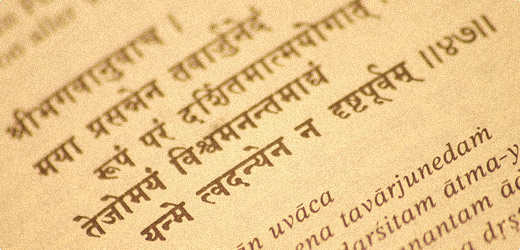 “Who am I?” Maybe you’ve never even asked yourself this question. You might think you already know who you are. Unfortunately, however, it’s likely that you don’t know who you are at all. And if you don’t know your real identity, you’re in trouble. You’ll spend your life in a kind of dream state—you’ll falsely identify yourself as something or someone you aren’t. Then, on the basis of this false identification, you’ll determine the goals of your life and the purpose of your existence. You use these goals to gauge whether you are making “progress” in life, whether you are a “success.” And you are aided and abetted in this delusion by a complex network of relationships with other dreamers. Of course, at death (and sometimes before), the whole thing turns into a nightmare.
“Who am I?” Maybe you’ve never even asked yourself this question. You might think you already know who you are. Unfortunately, however, it’s likely that you don’t know who you are at all. And if you don’t know your real identity, you’re in trouble. You’ll spend your life in a kind of dream state—you’ll falsely identify yourself as something or someone you aren’t. Then, on the basis of this false identification, you’ll determine the goals of your life and the purpose of your existence. You use these goals to gauge whether you are making “progress” in life, whether you are a “success.” And you are aided and abetted in this delusion by a complex network of relationships with other dreamers. Of course, at death (and sometimes before), the whole thing turns into a nightmare.
So knowing who you are is a very practical necessity. The question “Who am I?” is not a philosophical football meant to be kicked around coffeehouses by pseudo-intellectuals. It’s a real-life question. Nothing is more important and more relevant than to know who you are.
~ Jagad Guru Chris Butler (Siddhaswarupananda Paramahamsa)
© 2007 Science of Identity Foundation
Many people believe that a person is the brain or some part of the brain. You may be one of them. If so, the following should boggle your mind:
Recent studies on the turnover of the molecular population within a given nerve cell have indicated that ... their macromolecular contingent is renewed about ten thousand times in a lifetime.*In other words, the matter making up each brain cell is completely renewed every three days.
Your brain—that mass of matter which is contained in your skull today—is not the same brain that was in your skull last week.
*Paul Weiss, “The Living System: Determinism Stratified,” in Arthur Koestler and J.R. Smythies, eds., Beyond Reductionism (London: Hutchinson, 1969), p. 13.

